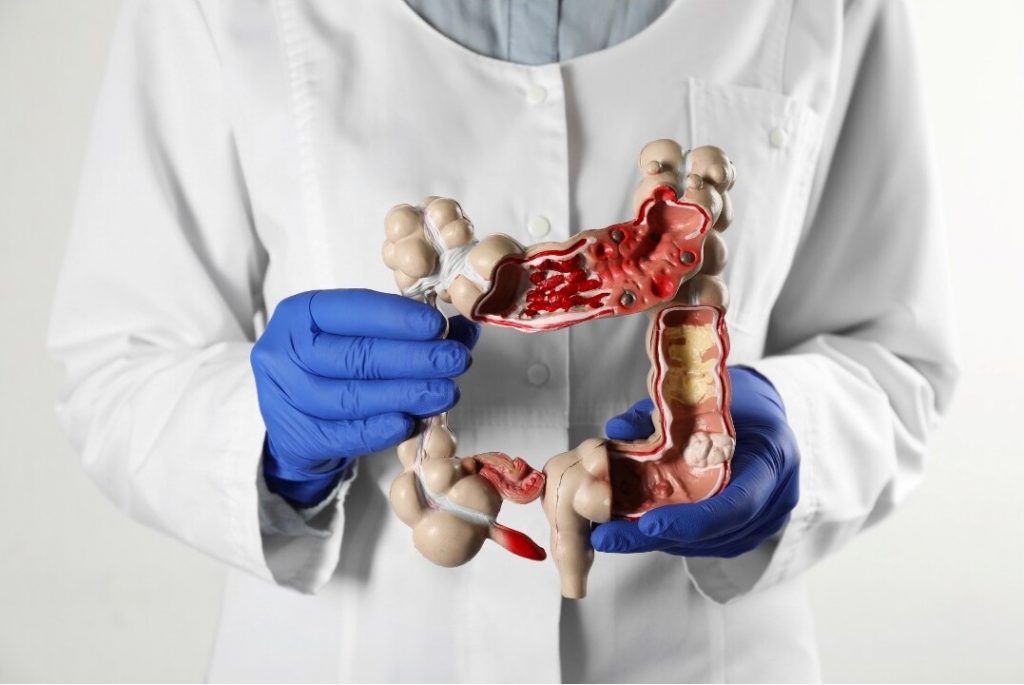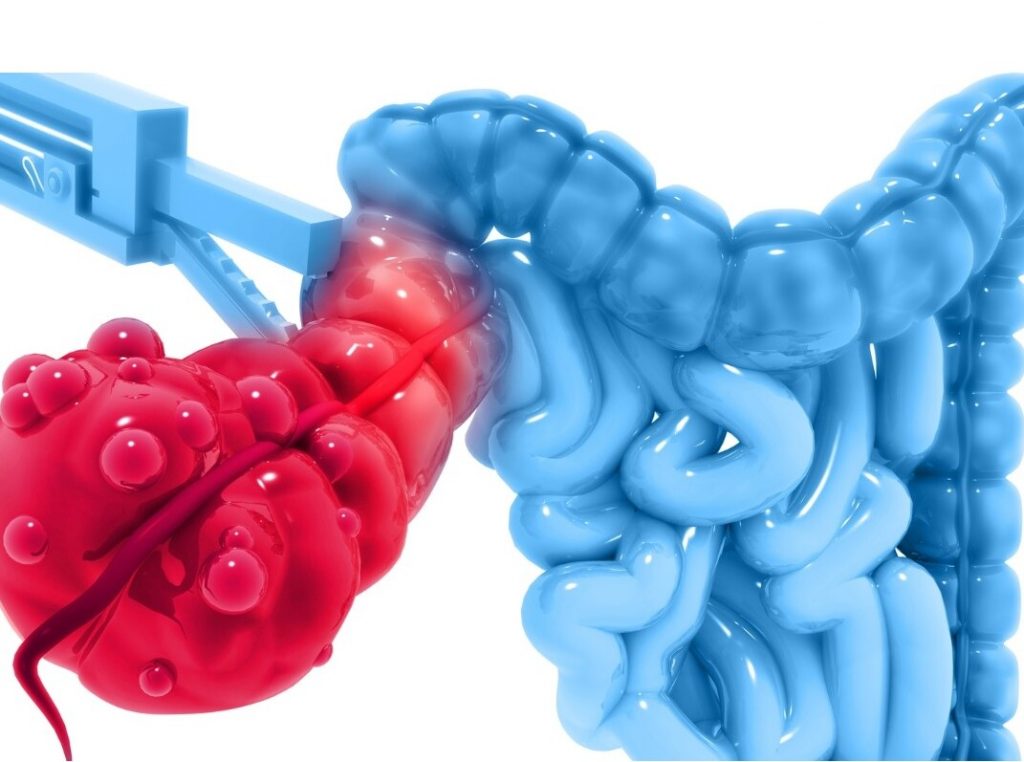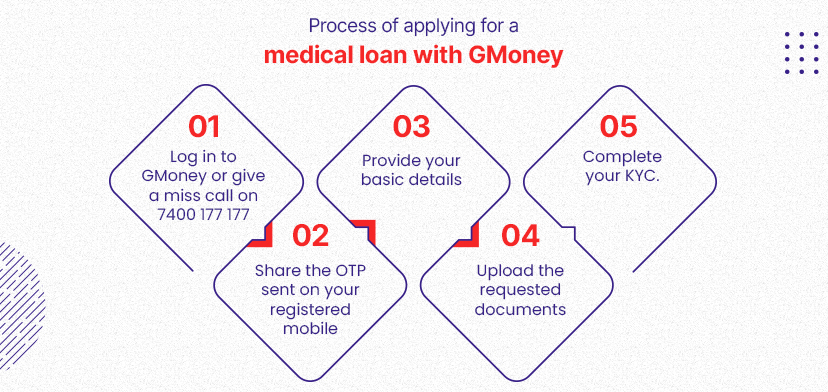Home » Appendix Removal Surgery Complications: Risks And Possible Side Effects

Do you have your appendix removal surgery scheduled soon? But you are too afraid about its post-operative complications and risk! If so, you need to read this blog till the end. In this article, we will discuss everything you need to know about appendix removal surgery (also known as appendectomy surgery), including the procedure, benefits, risks and complications, side effects and everything in between.
By the end of this blog, you will be aware of the risks and complications associated with appendectomy. Additionally, we will share some tips to minimise the likelihood of experiencing the side effects of appendectomy.
So, let’s dive into the blog and eliminate your fear and myths about appendectomy surgery!
Appendectomy is a general surgery procedure to remove the appendix. It is performed when the appendix is inflamed. The condition is commonly known as appendicitis.
The appendix is a small vestigial organ in your abdomen. It is attached to the large intestines near its connection to the small intestine. It is a finger-shaped pouch that projects near the union of small and large intestines and is on the right side of your abdomen (neat waistline). As mentioned, it is a vestigial organ with no body function.
Appendicitis is a medical condition caused due to inflammation of the appendix. It is a painful condition that can only worsen as the inflammation increases and becomes severe. Eventually, the pain becomes unbearable, and it can also lead you to an emergency room.

Appendicitis causes severe discomfort and pain to the patient. The signs and symptoms of appendicitis include:
According to Dr Manoj Nagvekar, an expert General & Laparoscopic Surgeon in Mumbai, the signs and symptoms of appendicitis are often confused with kidney stones, acidity discomfort, or menstrual cramps in women. To find relief from the underlying pain, patients often consume painkillers which cause delays in the treatment of appendicitis. This delay in the treatment can cause potential hazards to the patient, and thus it is necessary that the patient immediately seeks a surgeon or physician to get the condition diagnosed.
There are many causes of appendicitis, such as injury, infection, underlying digestive problems, etc. However, the most common cause of appendicitis is the blockage of the appendix, which leads to the growth of bacteria in the appendix. This bacterial growth leads to inflammation, swelling and the formation of pus. If untreated, it can lead to further complications, and appendectomy is necessary.
Untreated appendicitis can cause serious problems, such as,
Rupturing of Appendix:
Rupturing of the appendix can be very serious. It leads to the spread of infection throughout your abdomen, causing peritonitis. This is a life-threatening infection, requiring immediate appendectomy and cleaning of your abdominal cavity.
Formation of Pus Pockets in Abdomen:
Rupturing of the appendix also leads to developing pus pockets throughout your abdomen. These pus pockets allow further microbial growth leading to further infection (abscess).
This abscess is also very life-threatening as it may lead to multiple organ failure. This abscess needs to be drained. This is treated via appendectomy, placing a catheter into the abscess wall. This catheter drains the pus, and antibiotics help eliminate the infection-causing bacteria.
According to Dr Rajeev Kansal, a specialist General Surgeon in Delhi, patients often delay the treatment of appendicitis either due to late diagnosis or due to the fear of surgery. This delay leads to severe infection and the formation of pus in the appendix. The condition is called an appendicular lump. If this appendicular lump bursts, it leads to a medical emergency, which is life-threatening. In such emergencies, immediate open surgery is done. Dr Rajeev advises patients to get the condition diagnosed in time to manage it without any complications.
In most cases, appendectomy is performed in emergency situations. The appendix removal surgery (appendectomy) is performed in two ways:
Open Appendectomy
In an open appendectomy, the surgeon makes a small incision of about two to four inches on the lower right side of your abdomen. The surgeon removes the appendix, clears your abdominal cavity, and stitches back the incision.
It is usually performed under local anaesthesia and requires an overnight or longer stay at the hospital before discharge. The recovery time for an open appendectomy is around 4-6 weeks.
Laparoscopic Appendectomy
A laparoscopic appendectomy is a surgical procedure done with the help of a laparoscope. During the surgery, the surgeon makes two to three very small incisions to pass the laparoscope equipped with a camera and surgical tools. The surgeon sees everything on the TV monitor and removes the appendix using surgical tools.
Laparoscopic surgery is less painful and leaves less scarring than open appendectomy. Moreover, the recovery time for laparoscopic surgery is also less than the counterpart. Laparoscopic surgery requires less hospital stay and has really low infection and complication rates.

An appendix removal surgery is the standard treatment for appendicitis. The potential benefits of appendectomy include the following:
Appendectomy is generally a safe procedure, but like any other surgery, it involves some risks. Some common risks and side effects of appendectomy include:

The risks and complications associated with appendectomy surgery can be minimised and managed with proper care.
To have a safe and sound appendectomy experience, it is important to consult an expert and get operated on at the best hospital for surgery in India.
Your best surgeon will discuss the treatment options, procedures, and associated complications and risks. The surgeon also prepares a treatment plan for you, including pre-operative instructions and post-operative care.
Also, refrain from lifting and performing strenuous tasks for better recovery.
Additionally, following a healthy diet and taking prescribed medications can also help minimise the risks during and after the surgery.
Also, follow up with your surgeon and attend all scheduled appointments to ensure a smooth recovery.
Additionally, Dr Qazi Mubasir, a General and Laparoscopic Surgeon in Aurangabad, advises paying more attention to the food you eat. Eat food with more fibre and increase your water intake. Fibre and water intake helps in digestion and bowel movement, which also helps in recovery. Moreover, with a balanced diet and more water intake, appendicitis can be prevented in the first place. But if it occurs, it is very important to get it surgically removed.
In India, the price of an appendectomy ranges from ₹40,000 to ₹70,000. This can be very expensive, so some people don’t get the treatment they need. This can cause major problems, like rupturing and put your health at risk. You must see a doctor immediately to prevent these complications.
GMoney provides no-cost EMI medical loan options to individuals with financial problems paying for medical procedures like appendectomy surgery. These loans offer flexible repayment options with no added interest or fees.
In addition, GMoney’s straightforward online application and prompt disbursement make it possible for consumers to receive the necessary financial aid without unnecessary stress or lengthy delays.

1) What is an appendectomy?
An appendectomy is a surgical procedure to remove the appendix.
2) Why is an appendectomy performed?
An appendectomy is usually performed to treat appendicitis, which is inflammation of the appendix.
3) How is an appendectomy performed?
An appendectomy can be performed through open surgery or laparoscopic surgery.
4) What is the recovery time for an appendectomy?
Recovery time for an appendectomy can vary from a few days to several weeks, depending on the type of surgery and the patient’s health.
5) Is an appendectomy a major surgery?
An appendectomy can be considered a major surgery because it involves removing an organ from the body.
6) Can I use GMoney medical loans to pay for my appendectomy surgery?
Yes, you can use GMoney medical loans to cover the costs of your appendectomy surgery.
7) What is the interest rate for GMoney medical loans?
GMoney offers medical loans with zero interest rates and no hidden charges.
8) Is an appendectomy painful?
Pain and discomfort are common after an appendectomy but can be managed with painkillers.
9) Are there any processing fees for no-cost EMI at GMoney for appendectomy surgery?
No, there are no processing fees for no-cost EMI at GMoney for appendectomy surgery.
10) What are the risks of an appendectomy?
The risks of an appendectomy include bleeding, infection, damage to other organs, and anaesthesia complications.
11) How long does an appendectomy take?
An appendectomy can take anywhere from 30 minutes to 2 hours, depending on the type of surgery.
Appendectomy surgery is a standard procedure used to treat appendicitis. The benefits include pain reduction and rupture prevention. As with any surgery, there are risks and potential complications, but these can be avoided with appropriate care and consultation with an experienced surgeon.
To avoid serious problems, it’s important to get medical help as soon as possible and, if needed, to look into financing options like GMoney’s no-cost EMI medical loans. People can have a safe and successful appendectomy surgery with the proper care and resources.
Disclaimer: THIS WEBSITE DOES NOT PROVIDE MEDICAL ADVICE.
Follow us
Reach us
Mumbai HO
GMoney Pvt. Ltd.
315, 215 Atrium,
Next to Courtyard by Marriott,,
A.K. Road, Andheri East,
Mumbai - 400093
Ph : +91 86570 00105, +91 72089 60444
Quick Links
Bengaluru
GMoney Technologies Pvt. Ltd.
Oyo Work Spaces, Umiya Emporium,
Opposite Forum Mall, Hosur Rd,
Koramangala, Bengaluru,
Karnataka 560029
Ph : +91 89717 34815
Delhi
GMoney Technologies Pvt. Ltd.
Berry Co Works, 1E/3,
Jhandewalan extension,
Next to jhandewalan metro station
gate no. 2 Barakhambha Road,
New Delhi, Delhi 110001
Ph : +91 97116 26832
Pune
GMoney Technologies Pvt. Ltd.
91 Spring Board, Sky Loft,
Creaticity Mall, Off, Airport Rd,
opposite Golf Course, Shastrinagar,
Yerawada, Pune,
Maharashtra 411006
Ph : +91 84250 28758
Chandigarh
GMoney Technologies Pvt. Ltd.
SCO no. 292,
First Floor, Sector 35D,
Chandigarh
Ph : +91 84279 82012
Jaipur
GMoney Pvt. Ltd.
CODESKK Civil Tower,121 122,
Pandit TN Mishra Marg,
Santhosh Nagar, Nirman Nagar,
Jaipur – 302019
Ahmedabad
GMoney Pvt. Ltd.
22nd Floor, B Block,
Westgate By True Value,
Nr. YMCA Club, SG Highway,
Ahmedabad – 380051
Hyderabad
GMoney Pvt. Ltd.
Dwaraka Pride,
Plot no. 4/1, Survey No. 64,
Huda Techno Enclave, Madhapur,
Hyderabad (Telangana) – 500081
Chennai
GMoney Pvt. Ltd.
DBS Business Center, 31A,
Cathedral Garden Rd, Badrikari, Tirumurthy Nagar, Nungambakkam, Chennai, Tamil
Nadu – 600 034
Mumbai HO
GMoney Pvt. Ltd.
315, 215 Atrium,
Next to Courtyard by Marriott,,
A.K. Road, Andheri East,
Mumbai - 400093
Ph : +91 86570 00105, +91 72089 60444
Bengaluru
GMoney Pvt. Ltd.
3rd floor, Ranka Junction,
AH45, Krishna Reddy Industrial Estate,
Dooravani Nagar,
Bengaluru Karnataka - 560016
Ph : +91 72089 60444
Pune
GMoney Pvt. Ltd.
91 Spring Board, Sky Loft,
Creaticity Mall, Airport Rd,
Opp. Golf Course, Shastrinagar,
Yerawada, Pune,
Maharashtra - 411006
Ph : +91 72089 60444
Delhi
GMoney Pvt. Ltd.
Berry Co Works, 1E/3,
Jhandewalan extension,
Gate no. 2 Barakhambha Road,
New Delhi, Delhi - 110001
Ph :
+91 72089 60444
Chandigarh
GMoney Pvt. Ltd.
SCO No. 292,
First Floor, Sector 35D,
Chandigarh - 160022
Ph : +91 72089 60444
Hyderabad
GMoney Pvt. Ltd.
Dwaraka Pride,
Plot no. 4/1, Survey No. 64,
Huda Techno Enclave, Madhapur,
Hyderabad (Telangana) - 500081
Jaipur
GMoney Pvt. Ltd.
CODESKK Civil Tower,121 122,
Pandit TN Mishra Marg,
Santhosh Nagar, Nirman Nagar,
Jaipur - 302019
Chennai
GMoney Pvt. Ltd.
DBS Business Center, 31A,
Cathedral Garden Rd, Badrikari,
Tirumurthy Nagar,Nungambakkam, Chennai,
Tamil
Nadu - 600 034
Pune | Mumbai | New Delhi | Kolkata | Chennai | Navi Mumbai| Bengaluru | Ahmedabad | Nagpur | Hyderabad | Jaipur | Lucknow | Bhopal | Bhubaneswar | Nashik | Indore | Ghaziabad | Kanpur | Amritsar | Vasai | Noida | Gurugram | Chandigarh | Ranchi | Cuttack | Thane | Kalyan | Jalandhar | Kolhapur | Visakhapatnam | Chakan| Greater Noida | Wagholi | Raipur | Panvel | Belgaum | Mohali | Bhiwandi | Talegaon | Coimbatore | Palghar | Mumbra | Sangli | Surat | Durgapur | Ludhiana | Kochi | Agra | Ahmednagar | Ajmer | Akola | Aurangabad | Baroda | Beed | Rewari | Patiala | Vellore | Ranjangaon | Nanded | Nellore | Panipat | Panjim | Madurai | Mysore | Mangalore | Korba | Mathura | Kalaburagi | Jalgaon | Kharar | Guwahati | Kollam | Jamshedpur | Gwalior | Saswad | Solapur | Varanasi | Salem | Sambalpur | Jodhpur | Hubli | Panchkula | Faridabad | Amravati | Ayodhya | Badlapur | Dehradun | Parbhani | Ujjain | Udaipur | Tiruchirappalli | Srinagar | Shimla | Secunderabad | Ratnagiri | Pandharpur | Ananthapuram | Buldhana | Hadapsar | Baramati | Chittoor | Darjeeling | Dhule | Fatehpur | Gandhinagar | Haridwar | Gorakhpur | Jhansi | Kanchipuram | Kartarpur | Kurukshetra | Pondicherry | Prayagraj | Bharuch | Bhusawal | Bathinda | Pathankot | Nandurbar | Niphad | Kolar | Ambala | Kota | Pendurthi | Jabalpur | Palwal | Bhilai | Bhiwani | Bilaspur | Patna | Rohtak | Phagwara | Malegaon | Vijayawada | Bikaner | Chiplun | Darbhanga | Roorkee | Bhor | Rajahmundry | Margao | Alwar | Dhanbad | Bulandshahr | Aluva | Mulshi | Davanagere | Kapurthala | Anantapur | Loni | Latur | Gondia | Chhindwara | Chandrapur | Dharmapuri-TN | Faridkot | Dharwad | Daund | Chaksu | Bareilly | Kakinada | Haldwani | Doddaballapur | Dindori-MH | Bagru | Kudus | Kozhikode | Gurdaspur | Bokaro | Berhampur | Batala | Barrackpore | Ramgarh | Meerut | Bassi | Dera Bassi | Howrah | Karjat Raigarh | Thiruvananthapuram | Bheemunipatnam | Ambegoan | Allahabad | Aligarh | Alappuzha | Tirupathi | Thoppumpady | Srikakulam | Siliguri | Rourkela | Mirzapur | Gadag | Bellary | Tumkur | Sonipat | Hoshangabad | Junnar | Jalna | Hisar | Karnal | Kottayam | Muzzafarnagar | Ramnagara | Thrissur | Bahadurgarh | Balasore | Baraut | Dhar | Ernakulam | Gadhinglaj | Chikodi | Vaniyambadi | Kamothe |